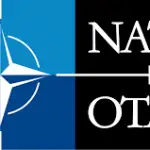According to Reuters, two additional missiles were fired by North Korea as Vice President Kamala Harris departed Japan for South Korea.
Harris will travel to the demilitarized zone (DMZ) between North and South Korea on Thursday while in Japan for the funeral of former prime minister Shinzo Abe. The launches come one day before a joint South Korean-U.S. operation and come after a previous test on Sunday in which a short-range ballistic missile crossed South Korea and landed in the Sea of Japan.
The launches come one day before a joint South Korean-U.S. operation and come after a previous test on Sunday in which a short-range ballistic missile crossed South Korea and landed in the Sea of Japan.
South Korea's national security council guaranteed "overwhelming" defenses against the north following Wednesday's launches, according to Reuters.
In my meeting with Prime Minister Han of the Republic of Korea, we discussed how our strong economic relationship is delivering results for the American and Korean people—from strengthening supply chains to investing in high-tech manufacturing in the United States. pic.twitter.com/tbnyS9HLYC
— Vice President Kamala Harris (@VP) September 27, 2022
In a statement denouncing North Korea's "destabilizing" ballistic missile and nuclear weapons programs, Indo-Pacific Command stated the launches do not "pose an immediate threat to U.S. forces or territory, or to our partners."
After Harris pledged Japan national security cooperation, the defense minister of Japan deemed the launches "inappropriate," according to Reuters.
South Korean policymakers anticipate a nuclear test in October, while North Korea has conducted a record number of ballistic missile tests in 2022.
Prior to Harris' departure, a top official from the White House issued the following warning: "Such a test would result in additional action by the United States to demonstrate our ironclad commitment to the security of the Republic of Korea and our Japanese allies."
The military ministry of South Korea urged American troops stationed there to prioritize the North Korean threat in light of China's assertiveness toward Taiwan. Concerns were raised that the United States might send troops to South Korea in response to an invasion by Taiwan when Commander Paul LaCamera, who is in charge of the American military there, made statements regarding "contingency preparation."
The U.S. Indo-Pacific Command's statement was referenced by the National Security Council to DCNF.
The preceding is a summary of an article that originally appeared on DAILY CALLER.




